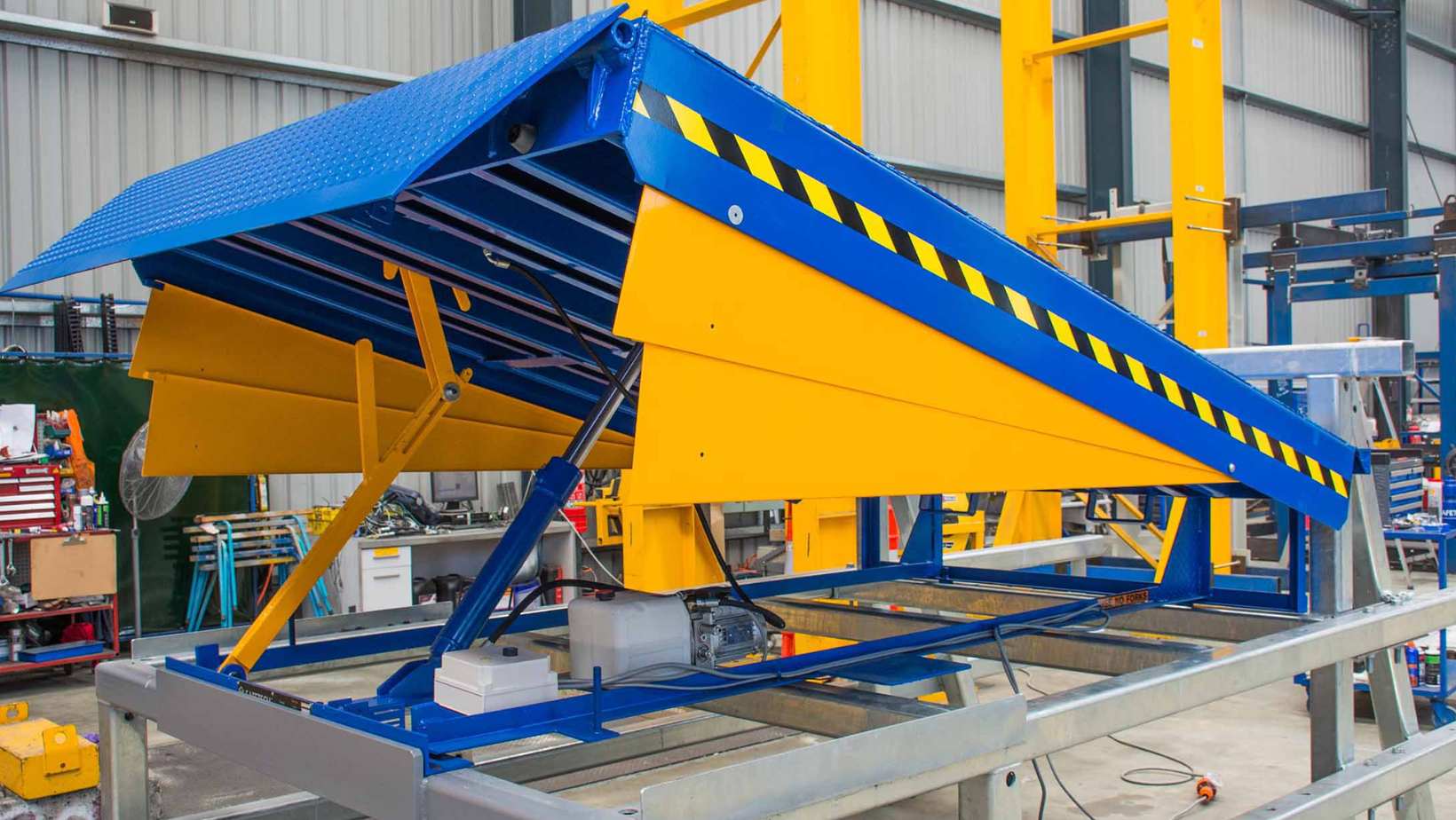Wanderer is a wordsmith with a wealth of research experience in industry, commerce and science and technology. She has written extensively on the latest advances in these fields, and her work has been published in some of the world's most respected journals. A voracious reader, she is always up for a good debate on any topic.

Dock levelers simplify the loading and unloading processes by bridging the loading bay with the docked vehicle. Like all other dock equipment, dock levelers have also edged towards modernity.
As you may already know, a Dock Leveller is a metallic base with an operational lip lowered in or leveled with the docked vehicle. The primary purpose of a dock leveler is to ensure efficient and safe cargo operations. However, the convenience provided by a dock leveler significantly relies on the purchase’s effectiveness.
Choosing an inappropriate dock leveler does more harm than good. For instance, it may get damaged during weight loading resulting in staff injuries and product damage. Also, it will require frequent maintenance. Therefore, it is vital to consider your purchase carefully to avoid all of these hitches.
How To Choose an Optimal Dock Leveler?
Your workplace dictates the capacities required in a dock leveler. However, some considerations are essential regardless of the workspace. Remember, compromising on these will not be reassuring.
Analyze The Use
The first thing that needs scrutinization is the use case. Consider the maximum weight of your expected cargo, the frequency of use, and the encountered deck heights. Moreover, it would be best to consider factors like washdowns and leveler placement.
For instance, if you are buying a dock leveler for a facility with specific hygiene standards, you’ll need to pick a dock leveler that is resistant to water. Also, if the facility or warehouse requires maintaining a particular temperature, you’ll need an appropriate placement of the leveler.
Option Pruning
Once you have decided on the use for the leveler, the next step is to trim down to the most relevant products. It means you’ll list the top products that fit your needs and preferences.
If you have lighter loads and relatively less variation in trailer heights, you can opt for EOD (edge-of-dock) levelers. EODs are easier to install and don’t require much maintenance cost or specific pit design for integration.
Required Type
Dock levelers are both electric-powered and manual. Electric-powered dock levelers are ideal for dock stations with heavier and frequent traffic, as the schedules are relatively stricter. In comparison, manual dock levelers are best for docking bays with lower traffics.
Work Mechanism
The working mechanism primarily dictates the efficiency and durability of dock levelers. Dock levelers have multiple types. However, hydraulic, air-powered, and mechanical dock levelers are the most common. Each type has its pros and cons and varying maintenance requirements.
Mechanical dock levelers are the most inexpensive as they use spring mechanisms to operate the deck. In comparison, hydraulics are efficient and durable.
Safety
Like all dock equipment, some dock levelers also come with safety features but ensuring them is essential. Hasty drive-ins are common in warehouses and loading docks. Therefore, some models come with an additional safety lip (also called a guarding lip) to prevent the primary lip from damage.
Many dock levelers also come with advanced sensors and alarms to indicate the leveler’s status. Some advanced warehouses also integrate their dock leveler with other dock systems to minimize mischiefs’ possibility.
The Bottom Line
Dock levelers occupy a primary position in warehouses; they are more than just metallic pieces with fancy operating mechanisms. An appropriate and reliable dock leveler increases your dock’s productivity and time management. However, selecting the right dock leveler is essential to reap such benefits.
The excerpt walks you through all the essential considerations when buying a dock leveler. You must factor in the cargo’s nature, frequency of use, and workspace requirements during the purchase. Furthermore, you can also look for additional safety features and appealing designs.
